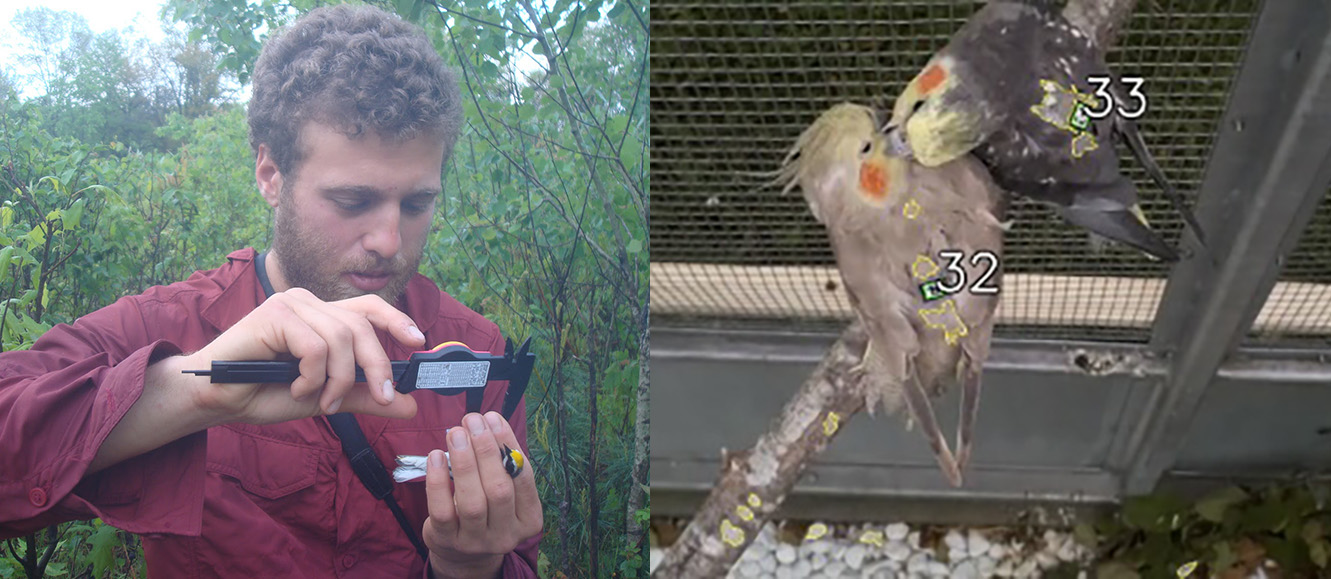E&E Joint Seminars
Deciding where to forage must not only account for variation in habitat quality, but also where others might forage.
Speakers
Event series
Content navigation
Description

Stephen Tyndel
Social mechanisms underlying group-level vocal signatures in cockatiels (Nymphicus hollandicus)
Vocal communication plays an important role in negotiating social interactions, particularly for species that exhibit fission-fusion dynamics. However, untangling the factors that shape vocal patterns remains challenging. Our study aims to investigate how social dynamics influence communication patterns in captive Cockatiels (Nymphicus hollandicus) with an emphasis on the impact of social affiliation, pair formation, and dominance hierarchies as primary causal agents of vocal change.
We conducted a controlled experiment comprising eight newly formed groups of six birds over three months, housed in large outdoor aviaries. We simultaneously recorded vocalizations, social interactions, and dominance interactions using microphone backpacks and overhead cameras. Using these semi-automated techniques, we generated an extensive dataset and analyzed the key drivers of changes in vocal patterns.
This study provides valuable insights into the relationship between sociality and vocal communication in parrots, emphasizing the significant role of pair formation in driving group-level changes. By exploring the underlying dynamics of vocal change in a highly controlled setting, we contribute to a more comprehensive understanding of vocal communication evolution and the social mechanisms that govern animal communication in general.
-------------------------------------------------------------------------------
Djordje Markovic
Conformity to diversity: cognitive and ecological determinants of learning in house sparrows
Location
Please note: this seminar will be held in the Eucalyptus Rm and via Zoom, details are included below.
Eucalyptus Room, Rm S205, Level 2, RN Robertson Building (46)
Please click the link below to join the webinar:
https://anu.zoom.us/j/87826283017?pwd=TjU1UHV2cjErbFA4NkdDYkRRUXJZUT09
Passcode: 351574
Canberra time: please check your local time & date if you are watching from elsewhere.
